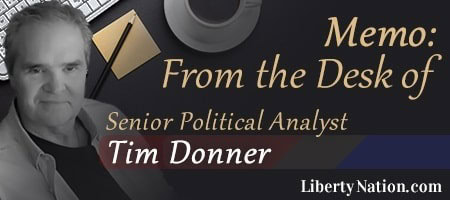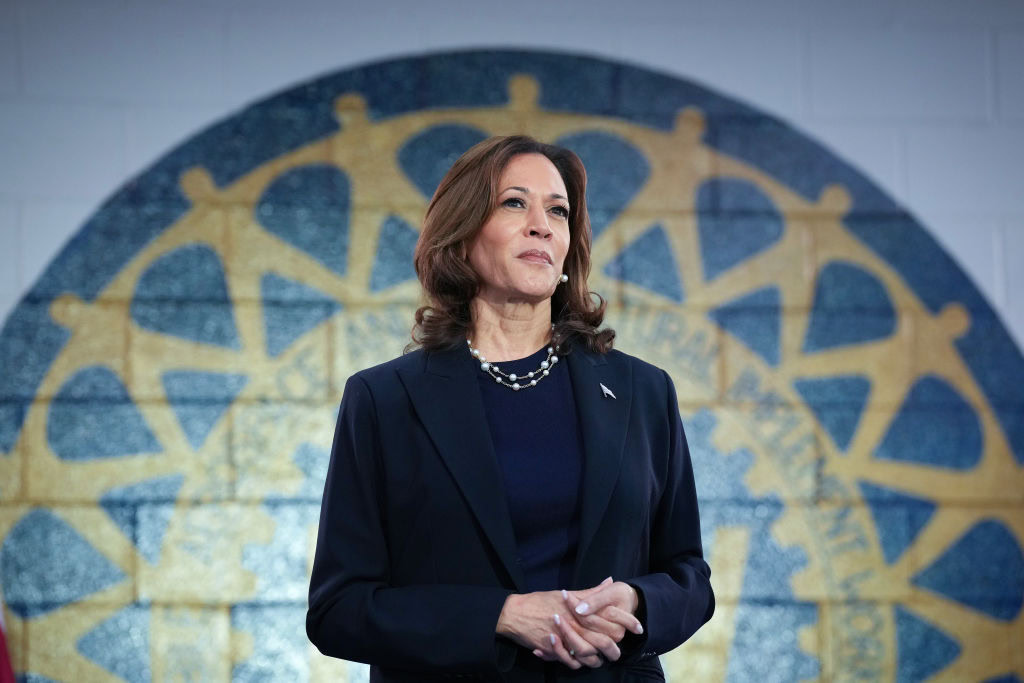Beyond the surface, past the sense of relief and adulation surrounding Kamala Harris’ elevation to the top of the Democratic ticket, she may have revealed her deepest and darkest fears by choosing Tim Walz as vice presidential nominee. And those fears have little to do with ideology. It is certainly true that she affirmed her radical image by passing over more logical, moderate candidates supported by most everyone in the party outside the shrinking Squad, Bernie Sanders and pro-Hamas activists. However, what the VP decision might actually reveal at a deeper level is that, while the vice president might be all in on running for president, she is not really interested in, or may even be fearful of, serving as president.
To be clear, this does not mean she cannot win the election. But the signals she is sending suggest victory is not her main priority.
Would someone serious about winning and governing select a VP nominee who is by far the most progressive among a short list of center-left Democrats who would have undoubtedly appealed to a broad swath of Americans in the middle? Even in a truncated selection process, how could Harris not have realized that Walz would become an instant lightning rod for bowing to every fashionable left-wing movement that took root in the 2020 summer from Hell? Are her political instincts that bad?
On top of a progressive record so easy for Trump to exploit in the fall, could the Harris team not have known picking Walz would achieve the last thing the campaign should have wanted, the re-litigation of Minneapolis burning to the ground as Walz did nothing while protecting the rioters instead of the residents? They must have known he was convicted on a DUI charge that landed him in jail and that he bailed on his Army National Guard unit when it was assigned to the war in Iraq, episodes bound to generate immediate controversy and put the campaign on defense. The rollout of a running mate should be a time to go on offense with something more than how terrible Donald Trump is. Voters have been hearing that for almost a decade.
The Sounds of Silence
The Trump campaign has been waiting with bated breath for Harris to make her first misstatement, her first word-salad, or anything beyond rehearsed lines delivered to partisan crowds. But Kamala Harris won’t give them the satisfaction. She is remaining silent beyond her rallies, knowing big media will not demand she hold a press conference or a sit-down interview to explain her 180 since the last election on issues like the southern border, fracking, and Medicare for all – until they can no longer hold out once the campaign swings into fifth gear after Labor Day. This ensures no interruption in her rise to center stage at the Democratic National Convention in ten days, when she will again deliver a scrupulously prepared speech. But what then?
 Let’s be honest. The vice president is playing with house money. While Biden repeatedly said he expected to win, Harris consistently reminds her crowds that she is the underdog. She is having a grand old time thundering from the podium with the same teleprompter speech in one swing state after another. She is bathing in the staged adoration of a party breathing a sigh of relief that Joe Biden is done. Harris knows Democrats will give her a long leash, and if she loses after being thrust to the top of the ticket at the last minute, much of the blame will be placed not on her but on Biden for refusing to leave the stage until he was forced out. As has often been the case during her rise to power, Harris will escape accountability.
Let’s be honest. The vice president is playing with house money. While Biden repeatedly said he expected to win, Harris consistently reminds her crowds that she is the underdog. She is having a grand old time thundering from the podium with the same teleprompter speech in one swing state after another. She is bathing in the staged adoration of a party breathing a sigh of relief that Joe Biden is done. Harris knows Democrats will give her a long leash, and if she loses after being thrust to the top of the ticket at the last minute, much of the blame will be placed not on her but on Biden for refusing to leave the stage until he was forced out. As has often been the case during her rise to power, Harris will escape accountability.
But when it comes down to it, does she really want to be in charge of untangling the Gordian knot between the pro-Israel and pro-Hamas wings of her party, the “marbling” of antisemitism among Democrats referred to by leftist Van Jones? Does she actually feel capable of bringing peace to the broiling conflicts in the Middle East or Ukraine? Does she believe she can fix an inflation-riddled economy that may well be headed for recession?
More importantly, does she really want to do the work?
The responsibilities of the president and commander-in-chief are beyond what any normal person can imagine. The decision to send Americans into harm’s way, on top of the classified information and credible threats that come to a president’s attention on a daily basis, would be enough to rattle the nerves of anyone. A very precious few can navigate the extreme pressure of being the leader of the free world. Viewed from that perspective, disguising a fear of the job, especially if one has risen to the top through selection rather than election, like Harris, without having to compete, is understandable. Plus, she has seen the demands of the presidency up close and personal, undoubtedly a chilling perspective by itself.
Kamala Harris and Tim Walz: Nothing to Lose
If you think about it, Harris picked someone just like herself. Tim Walz is playing with the same house money as Harris – as a largely unknown, untested, and unvetted choice seemingly out of left field. That makes him at once arguably the most dangerous yet ineffective candidate the VP could have selected – and not just because of his progressive record and ties to the Minneapolis riots. It is because, unlike Josh Shapiro or Mark Kelly, rising stars in the party who might well have outshined her, Walz is a relatively obscure politician with nothing to lose. As he reportedly told Ms. Harris, he is at the tail end of a long political career. This is his one chance to make a mark, and he is getting quite a kick out of his moment in the sun – while following the same strategy as Harris: duck and cover. He presents as a man trying to enjoy the last chapter of his political life.
Kamala Harris leaned on her personal relationships at the highest levels of California politics to land the positions of district attorney, attorney general, and senator in a state dominated by the left. After her campaign for president imploded before even hitting the starting gate and Biden boxed himself in by committing to a woman of color on the ticket, she was about the only one on the shortlist. Then she was gifted the top spot on the ticket four years later without winning a single vote.
This is not a woman who has faced or succeeded against serious competition. Thus, it is probably a wise strategy to ride the present wave of adulation as far as it can take her and allow her numbers to remain steady or rise by limiting herself to pre-written speeches before adoring audiences in battleground states. As both Abraham Lincoln and Mark Twain observed, “It is better to remain silent and be thought a fool than to speak and remove all doubt.” That would be especially true for someone who cannot or will not articulate a clear message or transparent belief system. In trying to steer clear of being unmasked – or of having to govern – she may subconsciously be making moves widely considered counterproductive to a successful campaign.
If drilling down on some of the most disastrous campaigns in recent political history, one could make the case that several presidential hopefuls were intent on something other than victory. In his remarks after losing to Barack Obama in 2008, John McCain left lingering doubts about whether he was truly committed to beating the first black man to win a major party nomination. In 1972, George McGovern seemed more interested in introducing radical new ideas to the mainstream than in beating Richard Nixon. And yes, Donald Trump may not have believed he could actually win the presidency in 2016. He was, however, supremely confident that he could almost singlehandedly create a durable movement wedding conservative principles to populism. Whether he could beat Hillary Clinton or not, he would give voice to the concerns of everyday Americans who felt abandoned by the federal government.
The sense that Kamala Harris is more interested in campaigning than governing brings to mind the closing scene in the iconic movie The Candidate. Robert Redford plays a political novice controlled by a team of hard-bitten, cynical political advisors who launch him to an upset victory on the strength of catchy slogans and artificial branding. After declaring victory and dodging the hordes of supporters and media, he escapes to the quiet of a back room, where he turns to his advisors, dazed and bewildered, and delivers the movie’s closing line: “What do we do now?”




